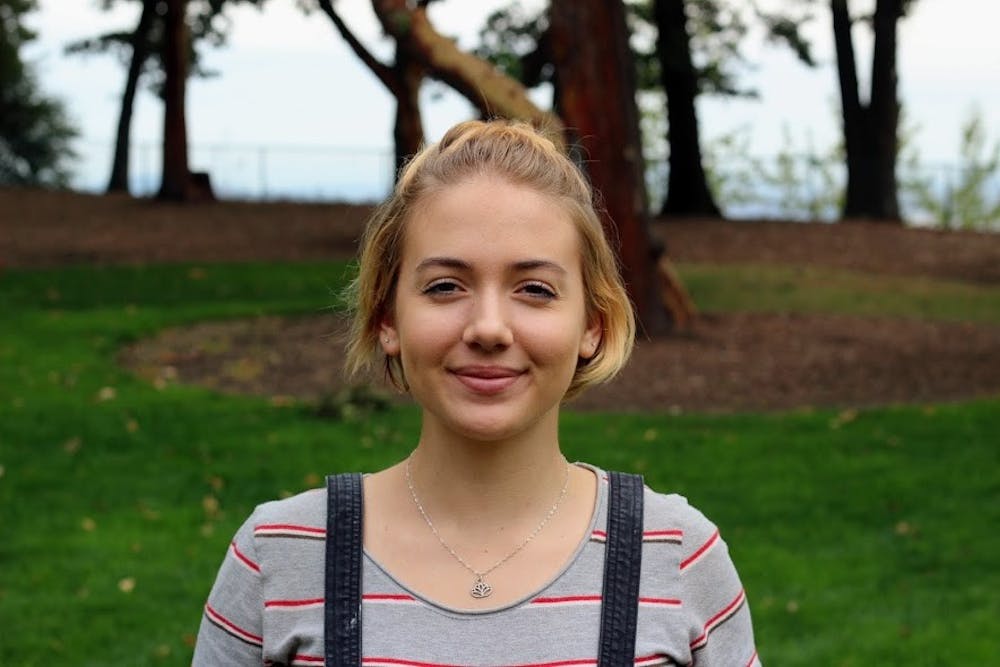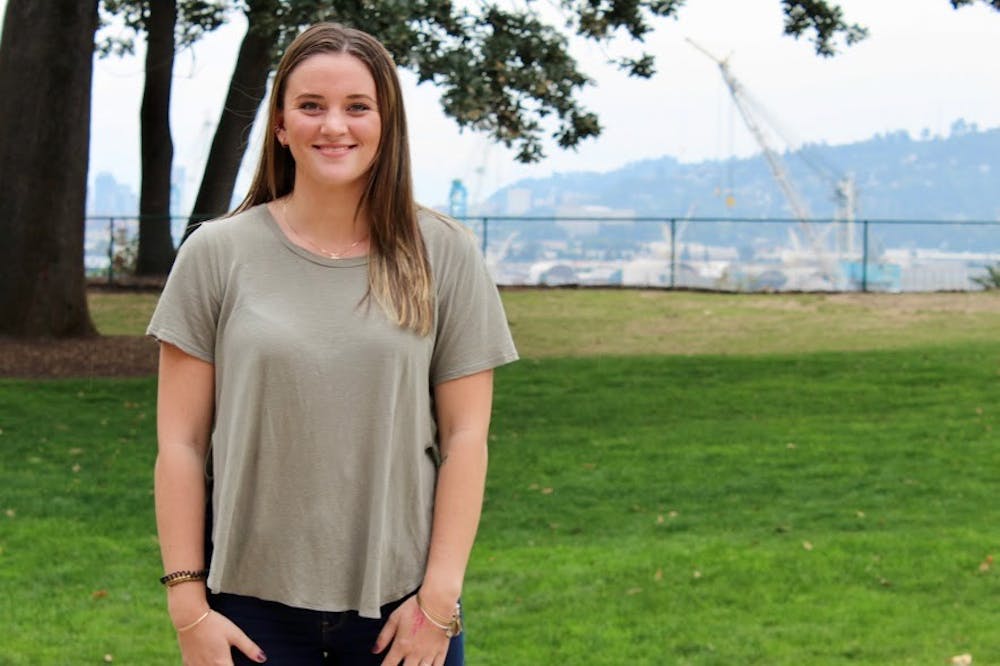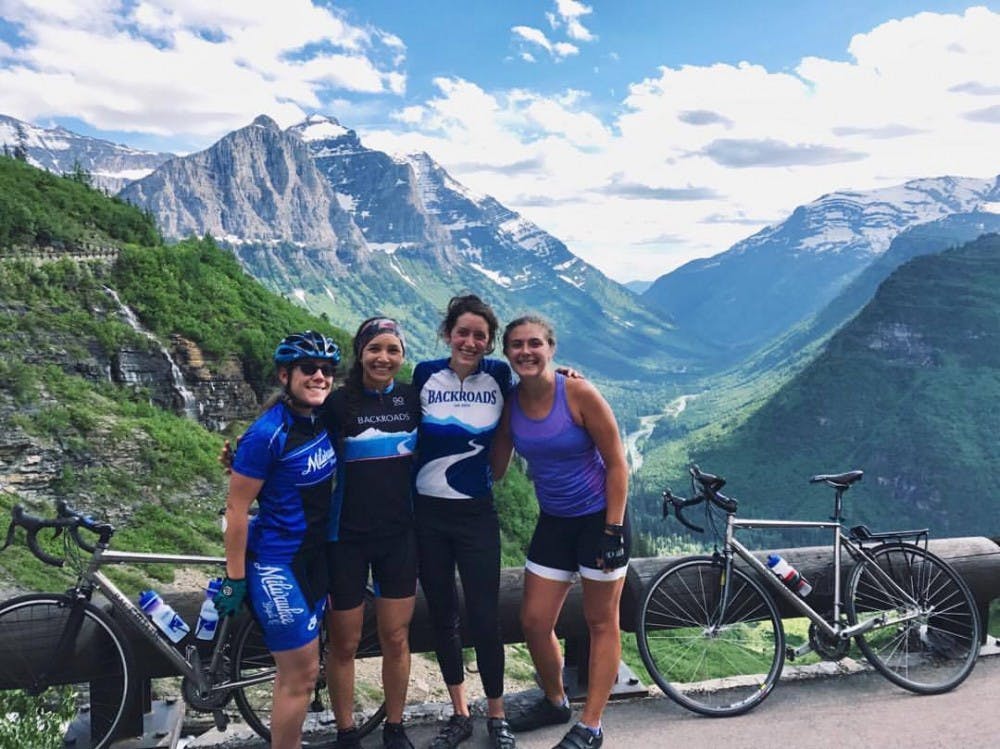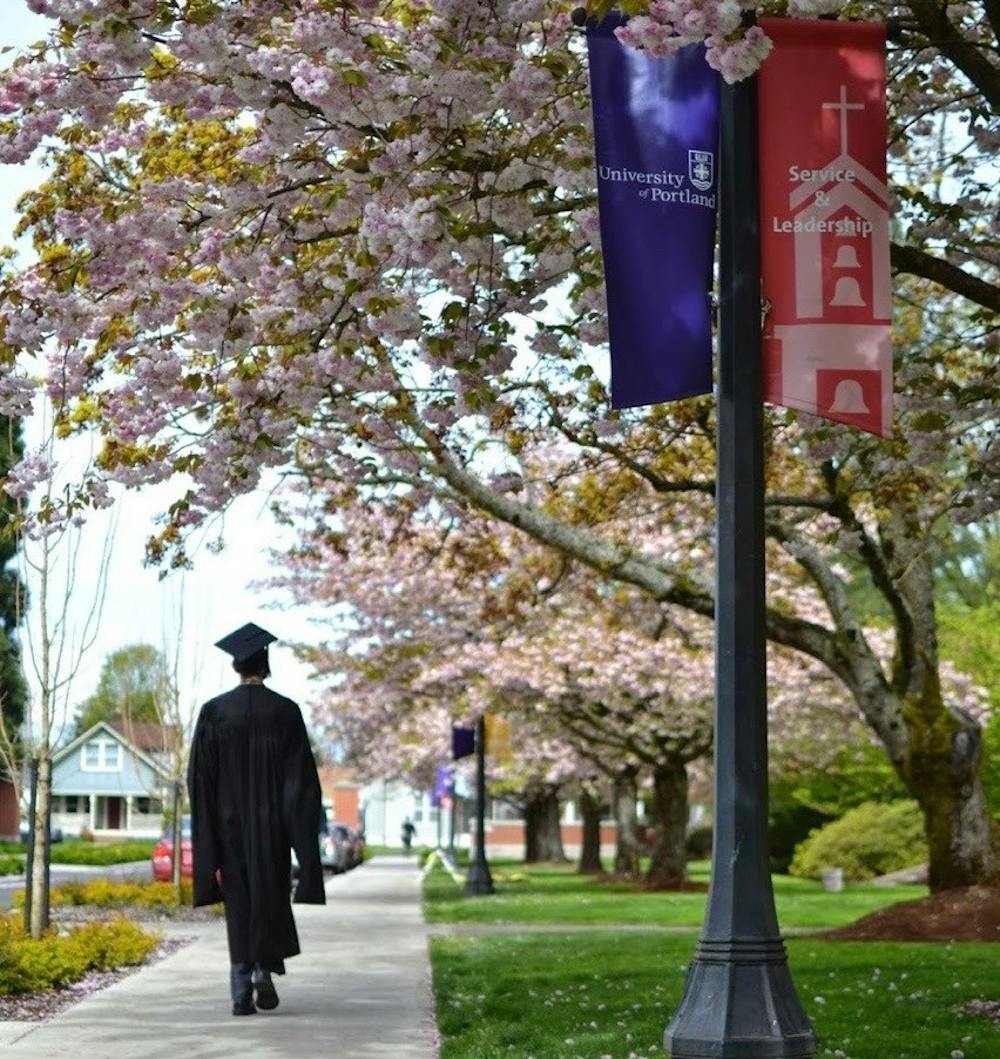Where do you see yourself after you graduate? Do you see yourself strolling the cobblestone streets of an Aegean city? Are you teaching students English in a foreign country? Are you setting up a sustainable farm, building infrastructure, completing important research, advocating for human rights? Or are you still studying in a coffee shop, except your barista speaks French, and the lattes are truly authentic in a town tucked away in northern France?
The deadline to apply to graduate is today, October 2nd. If you’re a junior or senior, you’ve probably already seen the email with graduation instructions in your inbox. While many students take their diploma and head to the job market, there are other paths to consider for life after The Bluff. Not sure what to do after graduation? The Beacon has three unconventional post-grad suggestions for you. We interviewed two current students and a UP alum about taking the roads less traveled after graduation to help you make your postgrad decision.
Try grad school abroad
You might have considered grad school, but have you considered grad school abroad?
Senior Mara Midiere is taking the academic route after graduation. Midiere, an organizational communication and environmental ethics and policy major, plans on attending Maastricht University in the Netherlands next year for a masters degree in sustainable science and policy.
“It was something that had been in the back of my mind," Midiere said. "I had thought more and more about wanting to spend more time abroad."
For those interested in grad school or school abroad, Midiere suggests they should reach out to specific professors in the discipline of their interest.
“Department chairs or professors you really like are good resources if you're interested in grad school because they usually get information for their department specifically,” Midiere said. “If you're interested in a particular area, reaching out to a specific professor for a certain program is always a good idea if you know you want to go to grad school at some point.”

Organizational Communication and Environmental Ethics and Policy major Mara Midiere contemplates what to do after college.
The University of Portland offers resources to help soon-to-be graduates learn more about graduate schools and scholarship programs like Fulbright, which Midiere has also applied for and has yet to hear back from. Midiere also suggests students check out the Office of Undergraduate Scholarly Engagement.
“They help you review your writing and go over your application, and give you the tips and tricks for making your application as strong as it could be,” Midiere said.
Volunteer for a year
If you’re sick of studying and want other postgraduate options, give yourself a break from the books and consider volunteering for a year. There are many organizations and charities that accept college graduates, such as the Peace Corps, Teach for America or Global Volunteers. In these programs, recent grads teach classes, build infrastructure, or complete a variety of other tasks to help communities in the United States or globally.
Senior Kaitlin Kjeldtoft is UP’s campus ambassador for the Peace Corps, and she has all the information UP students need to learn more about the program. Kjeldtoft plans on joining the program herself after she graduates.
“On campus, my job is to reach out to students who are unsure what they want to do after college,” Kjeldtoft said. “In some sense I’m kind of like a recruiter.”
Joining the Peace Corps is a 27-month commitment: Three months of training and two years of service, according to Kjeldtoft. Participants are sent to one of over 60 countries, completing work related to one of six sectors: Agriculture, Environment, Community Economic Development, Health, Education, and Youth in Development.
The work volunteers do in the Peace Corps varies depending on the field. Kjeldtoft said a volunteer committed to the field of agriculture could help set up sustainable farms. Students interested in health could help set up pharmaceutical areas, provide basic healthcare and teach about birth control and reproductive rights.

Kaitlin Kjeldtoft is a Peace Corp ambassador for the University of Portland. After graduation, serving in the Peace Corp can give you an opportunity to see the world and acquire new skills.
For students interested in going on to grad school after volunteering, Kjeldtoft said there are over 200 fellowships offered to Peace Corps members. These fellowships provide better chances of being accepted and reduced costs of tuition for certain universities and programs. Even some student loans can be relieved by joining the Peace Corps.
According to Kjeldtoft, Peace Corps experience looks great on a resume and volunteers learn a lot of marketable professional skills. Additionally, for government jobs, Peace Corps volunteers are given preferential hiring status for two years.
“So if you and 800 people apply (for a government job), your application is close to the top and you’re looked at heavily,” Kjeldtoft said.
For students who are interested in the Peace Corps, Kjeldtoft recommends they should tailor their resume to the job or field they want to purpose. To ask Kjeldtoft more about the Peace Corps, email her at kjeldtof19@up.edu.
Become a tour guide
If you don’t want to go back to school or volunteer, you could try the tour guide route. Do you want to travel and make money at the same time? (Wait, is this real life?) Post-grads looking to travel and make money could apply for tour guide positions at companies such as National Geographic, Bus2alps or Backroads.
UP alum Katie Heitkemper is working for Backroads as a leader in Spain. She describes Backroads as an active travel company, in which leaders take tourists on walking, biking and multi-sport trips. Last year, the Beacon reported on her story prior to her graduation.
The job entails hours of bike riding and living with a group of people, so leaders should be active and social types of people.
“It’s kind of tip-toeing the line between living and working,” Heitkemper said. “It’s a bunch of fun, but every once in awhile, you're like, it’s work.”
Heitkemper said the organization has around 700 leaders globally, and they take trips in the United States, Europe, Southeast Asia, New Zealand, and Africa, among others. Leaders earn an hourly wage and tips at the end of every trip, and costs of housing and food are usually paid for.
“It’s a great thing to do after graduation,” Heitkemper said. “Most of the leaders are in their twenties, but there are leaders in their thirties and forties.”

Heitkemper on a Backroads trip. Photo courtesy of Katie Heitkemper.
In addition to being a fun job, it’s also a great way to meet new people, as leaders get to know fellow leaders and their guests well. Heitkemper believes UP students are a great fit for this program.
“I think it fits the persona of a UP student,” Heitkemper said. “People at UP are very genuine and want to learn about the world and other people, are interested in traveling, and are also really outdoorsy and active.”
Heikemper can be reached at katie_heitkemper@backroads.com or heitkemp17@up.edu for students interested in learning more about the program.
As graduation approaches, seniors at UP could feel a sense of impending doom. But students shouldn’t feel pressured to find a job right away because there are a variety of options that are not only fun and rewarding, but are seeking college graduates specifically. UP students should realize they can take their diploma and travel, volunteer or continue to study into their twenties if they choose to.








